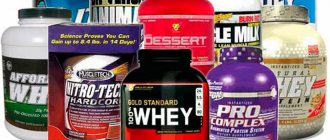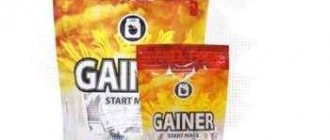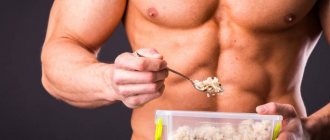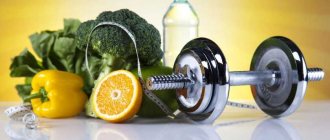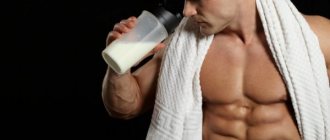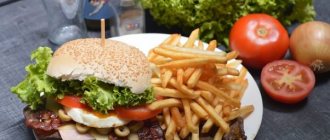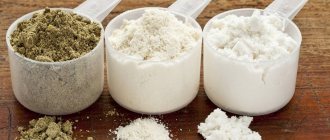An important factor in improving results—recovery—depends on nutrition. The faster the body recovers, the more load it can “digest” and the stronger it becomes. Nutrition provides the body with material from which it “builds” new tissues, “repairs” damaged ones and prepares for new stress.
In nutrition, as in training, athletes are looking for unique regimens, diets, foods, and supplements that can provide an advantage. At the same time, they forget that the body is complex and knows better than us how to recover. You just need to give him the necessary materials. In this article you will learn the basic principles and rules of nutrition in endurance sports. What foods to pay attention to, when additional food supplements are needed, what a proper diet consists of.
Nutritional adjustments are needed to lose weight, gain weight, or improve recovery. Depending on the goals, the calorie content and the balance of fats, proteins and carbohydrates change. Get used to the dietary changes gradually. When changing eating habits, it is important to wait 2-3 weeks, after which the first results will appear.
Calorie content
On average, a person spends 1200-2000 kcal per day to maintain life. Roughly speaking, these calories are burned even while lying on the couch. Of course, the numbers are individual and depend on body weight, metabolism and other characteristics of the body.
You can more accurately calculate the body's energy expenditure using the formulas (scientific work: Mifflin MD, St Jeor ST, Hill LA, Scott BJ, Daugherty SA, KoH YO 1990):
- Men: Kcal per day = (10 × body weight in kg) + (6.25 × height in cm) - (5 × age) + 5
- Women: Kcal per day = (10 × body weight in kg) + (6.25 × height in cm) - (5 × age) - 161
To the resulting data, you need to add the calorie consumption during training - you get the body’s total daily energy requirement. If you need to lose weight, it is enough to maintain a deficit of 200-300 kcal per day.
Source: Cody Chan on Unsplash
Multivitamins and minerals
Vitamins and minerals are the most important elements for a runner's body.
Long-term loads lead to colossal waste of these substances. And it is important to understand that factors such as overtraining, poor health, low immunity, and injuries are mainly manifested due to a lack of microelements. These foods contain calcium to support strong bones, B vitamins to support energy, and a powerful combination of other nutrients to support overall health. Vitamins and mineralsSee all vitamins and minerals
Optimum Nutrition
Optimum Nutrition Opti-Men 90 tablets RUB 1,650 Servings: 30 Price per serving: 55.00 rub.
Buy
VP laboratory
VP laboratory Ultra Mens Sport Vplab 90 caps 981 rub. Servings: 45 Price per serving: 21.80 rub.
Buy
Natrol
Natrol Vitamin D3 5000 ME 90 tablets 824 rub. Servings: 90 Price per serving: 9.16 rub.
Buy
Optimum Nutrition
Optimum Nutrition Opti-Women 120 caps RUB 1,879 Servings: 60 Price per serving: 31.32 rub.
Buy
Carbohydrates, proteins and fats
A complete diet for an ordinary person should consist of 45-55% carbohydrates, 10-15% fats and 25-35% proteins. With regular training and high loads, you can increase the proportion of carbohydrates to maintain glycogen levels.
Carbohydrates
Carbohydrates provide the body with glycogen, the main fuel for endurance. Glycogen is consumed during prolonged exercise and is restored from carbohydrates supplied with food. Most people have enough carbohydrates in their diet, often in excess. Moreover, regardless of social status. Carbohydrates are the cheapest, simplest and most accessible food. This is bread, any pastries and flour, pasta, cereals, sweets, fruits, juices, sweet drinks, fast food. However, not all of this list of carbohydrates is healthy.
To recover faster and improve performance, try to eat more complex carbohydrates with a lower glycemic index (GI). Minimum - 2 grams per kg of weight. Maximum - up to 12 grams per kg of weight during training camps and competitions.
High GI foods quickly increase blood glucose levels. The body does not have time to use all the energy, it is stored in reserves and hunger sets in again. Therefore, endurance sports require predominantly complex carbohydrates with a low GI.
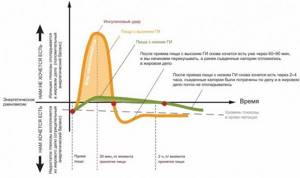
Squirrels
Proteins are building materials for the body. With a lack of protein, the immune system is weakened, the likelihood of injury increases, and recovery deteriorates. If there are no problems with getting carbohydrates, then with protein everything is more complicated - almost everyone lacks it in their diet. To see this, count the amount of protein in your diet for a couple of days. An average person needs at least 1-1.5 grams of protein per kg of body weight, and athletes need 1.5-2.5 grams of protein per kg. If you can’t get the right amount of protein from food, supplement your diet with protein shakes.
Every body needs protein, regardless of food preferences. Vegans and vegetarians need to get their protein intake from plant sources. This is what, for example, Kenyan runners do, who have meat on their table a couple of times a year, or even less often.
Fats
Fats are the main source of essential vitamins A, D, E, K, and are involved in the formation of cell membranes, body tissues and the functioning of the hormonal system. But not all fats are healthy. The main part should be polyunsaturated fats (flaxseed, soybean, olive, sunflower oil, fish oil, nuts and seeds) - 75-80% of fat intake. The remaining 20% can be saturated fat (pork and beef fat, butter, milk fat, palm oil and coconut oil). Try to eliminate trans fats (margarine, chips, fried foods and fried foods).
The most important:
- Complex carbohydrates
- Enough protein
- Fats from vegetable oils, nuts and fish
Sports nutrition for endurance
Many people mistakenly associate nutritional supplements with foods that only enhance muscle growth. However, depending on the expected result, they can be used in many ways. In this article, we will introduce you to the best supplements for muscle endurance.
Here's the information you should know:
Muscular endurance is the ability of the muscular system to perform long-term work. Depends on a number of factors:
• adaptation of the nervous system to chemical changes that occur as a result of performing certain work (ie physical activity);
• adaptation of the muscular system;
• efficiency of the respiratory and circulatory system - removing metabolic products (lactic acid and carbon dioxide) and providing fuel in the form of glycogen and oxygen;
• adequate reaction of the endocrine glands (adrenal glands, pituitary gland);
2. Supplements designed to increase endurance can be divided into three groups:
• providing energy for muscle work;
• inhibiting muscle acidification (reduce or control lactate levels);
• reducing muscle fatigue;
Endurance Supplements
a) energy supplements:
• medium-chain triglycerides (MCT). It is an ideal source of pre-workout fuel due to its high caloric content and absorption rate. In order to metabolize MCTs, the body does not need to undergo complex metabolic reactions as is the case with long-chain fats, since they are absorbed from the intestines and immediately returned to the liver. Burning 1 g of fat provides about 9 kcal without any response from insulin. Adding caffeine or a stronger drug before training will significantly improve the effectiveness of the exercises performed during training (the fact is that caffeine stimulates fat metabolism, increasing the production of energy and body heat);
• pre-training complexes. The active substances they contain (for example, caffeine, β-alanine) increase energy levels during training, additionally stimulate muscle growth and have a positive effect on the body’s performance;
b) foods that reduce lactate levels:
• creatine is one of the few products with proven effectiveness and universal use in sports. More and more people are using it, and the effect of its use is making it more and more popular. Creatine affects the faster resynthesis of adenosine triphosphate (ATP), and the sooner this process begins, the longer this work can be done. Another interesting issue is the inhibition of muscle acidification by buffered hydronium ions (H3O+), which has an anti-catabolic effect and promotes the development of lean body mass;
• β-Alanine is a derivative of alpha-alanine, the main amino acid found in our body. Its intake increases the concentration of carnosine in muscles. This dipeptide plays a very important role in the body, influencing the pH level in skeletal muscles, and thus inhibiting their excessive acidification. Research has shown high synergy between beta-alanine and creatine supplements, so we recommend combining these products.
c) reduction of muscle fatigue:
• BCAA are exogenous branched chain amino acids, i.e. amino acids that the body is unable to synthesize on its own. These include leucine, isoleucine and valine. Studies have shown that 10 grams of this supplement taken before exercise significantly reduces feelings of fatigue during physical activity. Why? BCAA competes with an amino acid called tryptophan for binding to receptors. If this tryptophan binds to the receptor, serotonin is released, causing you to feel tired. BCAA not only prevents this process, but also promotes faster regeneration after training, so you should definitely take this product. At the same time, BCAA is independently capable of triggering protein synthesis and can act as fuel for working muscles, thereby protecting muscle tissue from breakdown;
• caffeine - we mentioned a few words about this in a few paragraphs above. The study clearly stated that caffeine increased athletic performance. Despite the stimulation of the central nervous system, we can observe an increase in pain tolerance and, as a result, a decrease in fatigue, at the same time it is characterized by fat-burning activity and the ability to reduce the feeling of soreness (delayed muscle pain) after training;
• GABA - γ-aminobutyric acid in doses of 500-750 mg reduces muscle fatigue, and in large quantities has a drowsiness effect;
• L-carnitine is a naturally occurring amino acid. It is involved in metabolism and is also necessary for transporting fatty acids into mitochondria, thereby reducing the feeling of fatigue;
In addition to strictly targeted actions to achieve a specific result, the focus should also be on the proper functioning of the organs as a whole. Lack of vitamins and minerals reduces athletic performance. Therefore, pay special attention to iron, folic acid, B vitamins, vitamin E, magnesium, zinc, potassium, vitamin D3 and other compounds. The best way to do this is to buy vitamin and mineral preparations, in which you will find all the necessary micro- and macroelements.
Water and water-salt balance
On non-training days, the body needs 2-3 liters of water per day to maintain health. This volume includes all the liquid consumed per day, so there is no need to separately pour 3 liters of water into yourself. With regular training, especially in hot weather, the need for fluid can reach 6-7 liters per day. We wrote more about this in the article: How much water should you drink: myths and facts .
Be sure to drink water or isotonic water during a long or hard workout! Especially in hot weather. With the loss of moisture in the body, the water-salt balance is disrupted, the blood becomes thicker, and its volume decreases. Because of this, the load on the heart increases and blood circulation is disrupted, including in the brain. All this can lead to health problems.
Carnitine
The vitamin-like substance carnitine is a very popular supplement among athletes for a number of reasons, which runners should not ignore.
Firstly, because of its ability to delay the onset of fatigue, raise energy levels, and increase fat burning. Secondly, carnitine is involved in maintaining brain and immune system health. It should be noted that meat is a natural source of carnitine, so vegetarians should first of all be concerned with the issue of carnitine sufficiency in the body. CarnitineSee all carnitine
Maxler
Maxler L-Carnitine Comfortable Shape 2000 Bottle 1000 ml RUB 1,374 Servings: 50 Price per serving: 27.48 rub.
Buy
Optimum Nutrition
Optimum Nutrition L-Carnitine 500 mg 60 tablets RUB 1,162 Servings: 60 Price per serving: 19.37 rub.
Buy
LiquidLiquid
LiquidLiquid L-Carnitine Crystal 5000 20×25 ml RUR 1,892 Servings: 20 Price per serving: 94.60 rub.
Buy
QNT
QNT 2000 L-Carnitine Actif by Juice 700 ml 117 rub. Servings: 1 Price per serving: 117.00 rub.
Buy
Before, during and after training
The basic rule of eating before exercise is no later than 2 hours before training. If the food doesn't have time to digest, the workout will turn into a walk or end up in the bushes. As a last resort, 20-30 minutes before training, you can “throw in” a cracker with jam, a banana or other fast carbohydrates.
Eating during training (as opposed to drinking) is rarely needed. Training without nutrition teaches the body to use its resources more efficiently - this is the main factor in increasing endurance. Meals can be taken for long training sessions (more than 2 hours) for testing, checking the body’s reaction, and working out a nutrition plan for the race.
Immediately after an intense workout, a “protein-carbohydrate window” opens - at this time the body tries to quickly replenish reserves and works on the principle of supercompensation, accelerating the absorption of substances. Therefore, for quick recovery in the first hour after training, it is useful to eat fast carbohydrates and protein, for example, a banana, a carbohydrate bar, whey protein or a protein-carbohydrate shake. During the day, on the contrary, slow carbohydrates and protein are useful, for example, durum wheat pasta with chicken, turkey or fish.
Energy gels - recharge
On a long distance you will definitely need energy boost and the best source of fuel here is undoubtedly energy gels.
Ease of use, portioned packaging, various variations of tastes and textures, and most importantly a quick source of nutrients to maintain the body’s performance. The composition of the gels may differ depending on the manufacturer, but the basis is approximately the same: fast carbohydrates, sodium, potassium and other minerals. Some products may additionally contain caffeine, carnitine and other energy supplements. Energy gelsSee all energy gels
QNT
QNT EnerGel 55 ml 99 rub. Servings: 1 Serving price: 99.00 rub.
Buy
VP laboratory
VP laboratory Energy Gel Vplab 41 g 100 rub. Servings: 1 Price per serving: 100.00 rub.
Buy
SiS
SiS GO Isotonic Energy Gel 60 ml 140 rub. Servings: 1 Price per serving: 140.00 rub.
Buy
BioTech USA
BioTech USA Energy Gel Pro 60 ml 114 rub. Servings: 1 Price per serving: 114.00 rub.
Buy
Nutrition before competition
The most common pre-competition diet is carbohydrate loading. In its classic form, it consists of 2 stages: carbohydrate fasting and carbohydrate loading. At the first stage, the body completely uses up glycogen reserves, at the second, it replenishes them, but in large quantities. As practice shows, in this form carbohydrate loading is not necessary. You can simply increase the amount of carbohydrates, bypassing the carbohydrate fasting phase. We wrote about the features and options for carbohydrate loading in the article: Carbohydrate loading before a marathon: the essence of the method and nutrition plan .

Source: Jeremiah Lazo on Unsplash
Calcium
Bone protection is one of the priority tasks of every runner, due to the enormous loads on the musculoskeletal system during running.
This is especially true for asphalt and other hard surfaces. In addition, calcium provides benefits to runners in the form of heart protection, blood pressure control, and proper movement of nutrients across cell membranes. CalciumSee all calcium
Maxler
Maxler Calcium Citrate Plus D3 120 tablets 643 rub. Servings: 60 Price per serving: 10.72 rub.
Buy
NOW
NOW C-500 Calcium Ascorbate-C 100 caps 828 rub. Servings: 100 Price per serving: 8.28 rub.
Buy
Olimp
Olimp Calcium D3 Forte 1250 mg 60 tablets 395 rub. Servings: 60 Price per serving: 6.58 rub.
Buy
Maxler
Maxler Calcium Magnesium Zinc D3 90 tablets 521 rub. Servings: 30 Price per serving: 17.37 rub.
Basic nutrition rules. Bottom line
- Calorie content is equal to or slightly less (if you need to lose weight) your daily needs.
- Mostly complex carbohydrates, enough protein.
- Include vegetables, fruits and fiber in your diet every day.
- No strict diets (cucumber, kefir, etc.). Be sure to have a varied diet.
- Nutritional supplements and sports nutrition only when necessary to correct dietary deficiencies.
- Don't limit your fluid intake, take a drink to your workouts.


